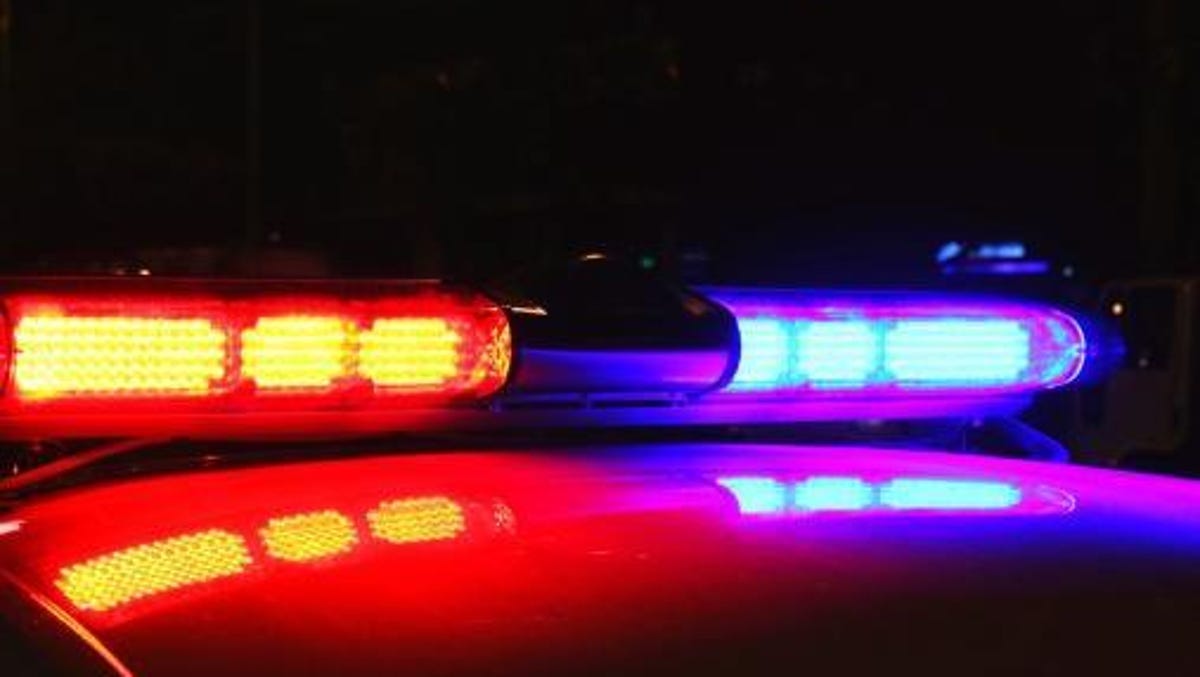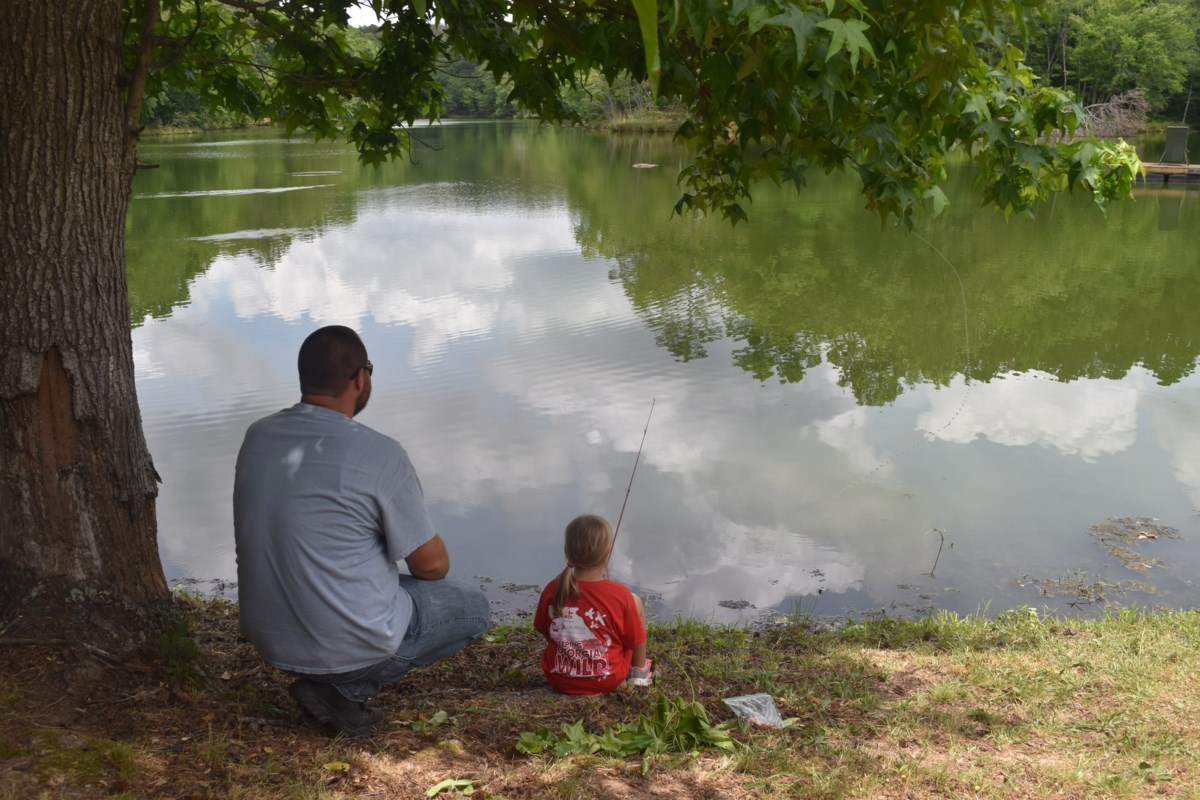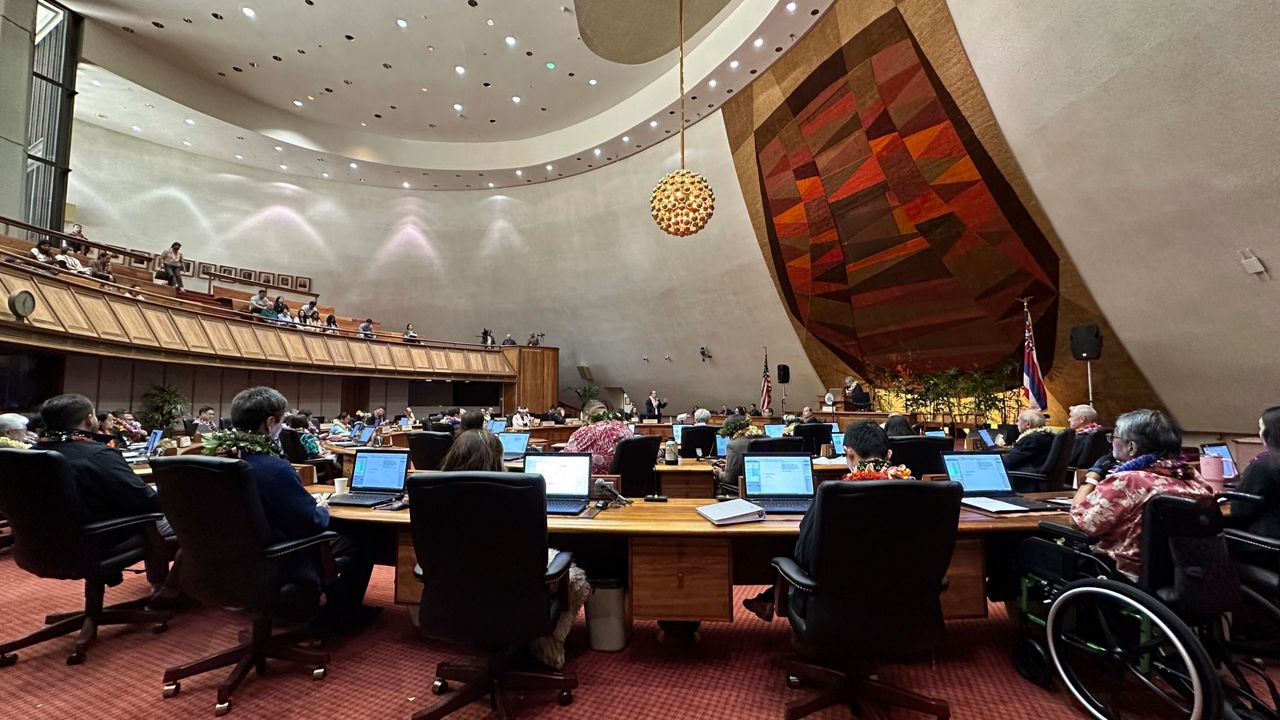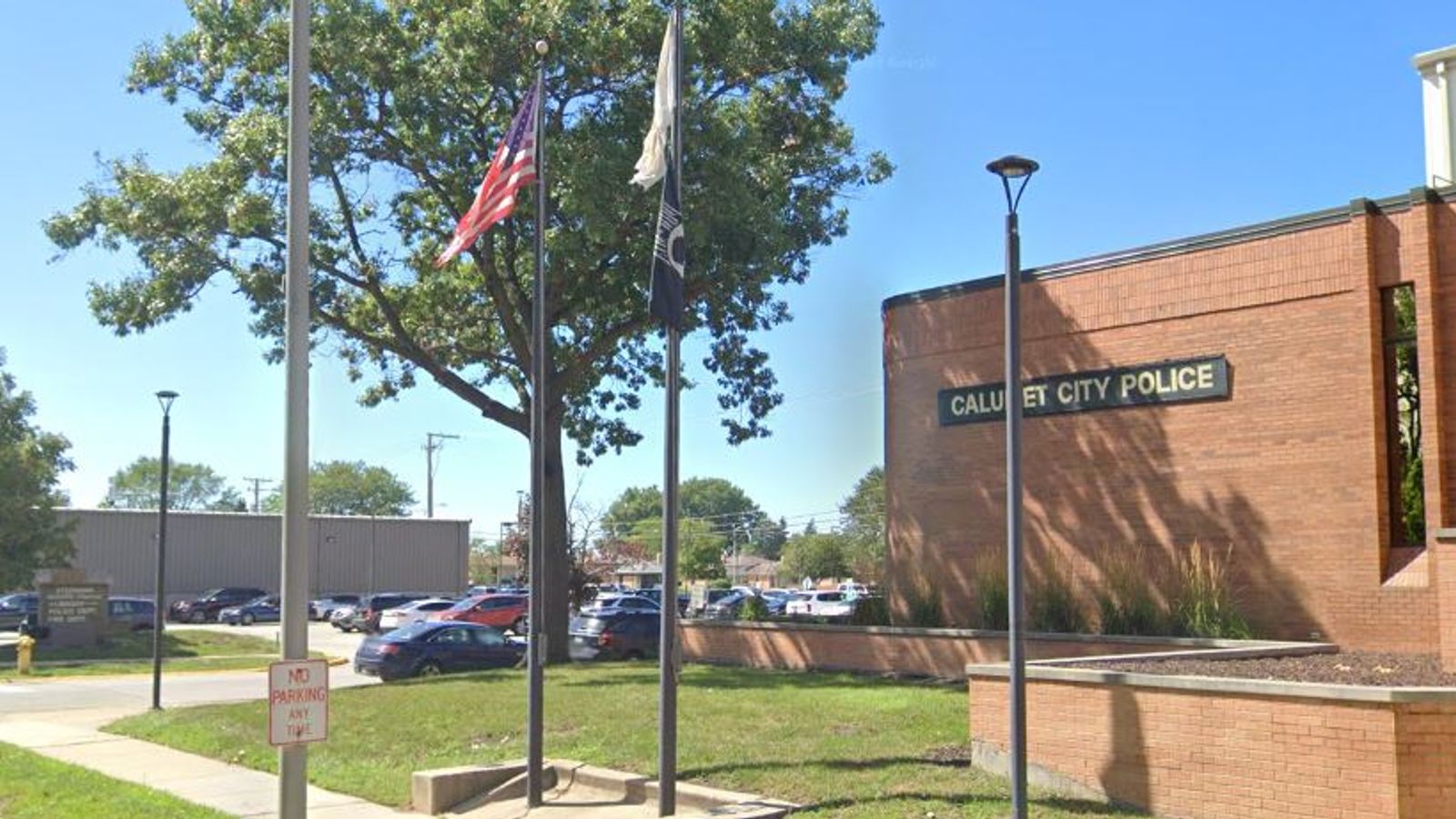Michigan
Michigan Legislature OKs trial court funding extension, stalls bill to create new plan

The Michigan Legislature voted Wednesday to continue allowing local courts to assess costs on defendants who either are convicted or plead guilty.
Without the extension, that authorization is set to expire May 1. A bill now headed for the governor’s desk would extend that to the end of 2026.
Representative Kelly Breen (D-Novi) supported extending the sunset on that funding mechanism. But she said lawmakers need to come up with a permanent fix, so courts no longer rely on fines for funding.
“We need to ensure that there is no, even an appearance of impropriety that judges are making decisions simply to generate court revenue. We can’t have that. And it results in unequal access to justice,” Breen told reporters after Senate session Wednesday.
Breen sponsors a bill that would require the State Court Administrative Office to propose a new, uniform statewide court funding system to the state Legislature by May 2026.
Breen emphasized it would then be up to lawmakers to decide whether to accept those recommendations or have the office try again.
Republicans, however, were skeptical of the plan.
Representative Andrew Fink (R-Hillsdale) said he doesn’t like how the bill relies on the State Court Administrative Office rather than lawmakers to propose a solution.
“That’s an inherently legislative responsibility to appropriate funds. And so, as we think through the best way to do that is, I don’t like the idea of asking SCAO to think through it, develop it, and just hand us its recommendations, which I believe we’ll then be pressured to adopt,” Fink said.
Fink said he’d prefer the Legislature taking the lead on coming up with a new trial court funding plan.
The issue of trial court funding has been a pressing matter for years.
A 2017 state law passed under then-Republican Governor Rick Snyder created a Trial Court Funding Commission to review concerns and come up with recommendations for lawmakers to pass. The commission issued its final report in 2019.
“Those recommendations were handed to the Legislature in 2019 with the hopes that the Legislature, which is the policymaking branch of government would lead, would take them up, and would have this healthy conversation. Now, for a variety of reasons, that just didn’t happen,” State Court Administrator Tom Boyd said.
That report mentions state and federal court cases in which the issue of how having a court rely on fines it imposes to fund itself could constitute a conflict of interest. While the state’s policy was upheld in a 2019 decision, Michigan Supreme Court Justices noted flaws within the system.
Boyd said a possible fix would still allow courts to assess fines and rely on other sources of local funding aside from fees for criminal proceedings. But creating a new Trial Court Fund to handle revenue from those court costs, as required in Breen’s bill, would add an extra layer of protection to avoid the appearance of a court having a motive to charge high fees.
Originally, the two bills were tie-barred, meaning one couldn’t become law if another didn’t. But, in a move to ensure the sunset extension had enough Republican support in the Senate for the bill to take immediate effect, Senate lawmakers broke the tie-bar.
The changes meant the bills went back to the House of Representatives, for that chamber to concur with the Senate’s actions.
The concurrence vote on the sunset extension, which had been sponsored by Republican Rep. Sarah Lightner (R-Springport), passed with wide bipartisan support. But Breen’s bill requiring a new proposal for funding the courts did not receive enough support to continue forward.
House Democrats will likely try again once two new Democratic members are seated next week.

Michigan
A look at commencement ceremonies as US campuses are roiled by protests over the Israel-Hamas war
Commencement ceremonies are being held at colleges and universities across the U.S. As many campuses have been roiled by protests over the Israel-Hamas war, some school administrations have taken steps to contain disruptions during their commencement activities.
University of Michigan’s commencement was held early Saturday with a few interruptions. Ahead of the ceremony, the school had said staff and security officers were ready to respond and that interfering with commencement would not be considered free speech.
Indiana University has designed protest zones outside graduation venues ahead of its commencement planned for Saturday evening. The Bloomington, Indiana, campus is designating zones outside Skjodt Assembly Hall and Memorial Stadium, where ceremonies will be held Saturday for undergraduates.
Here is a look at some of the commencement ceremonies:
UNIVERSITY OF MICHIGAN
Police officers stood nearby as some graduates holding Palestinian flags and shouting pro-Palestinian messages protested during commencement at the University of Michigan on Saturday, where tens of thousands of people gathered inside Michigan Stadium. One banner said, “No universities left in Gaza.”
The protests were away from the stage and didn’t stop the nearly two-hour event. But U.S. Navy Secretary Carlos Del Toro paused a few times during remarks and at one point said, “Thank you, ladies and gentlemen, if you can please draw your attention back to the podium.”
Del Toro administered an oath to graduates in the armed forces. He said they would “protect the freedoms that we so cherish,” including the “right to protest peacefully.”
Protesters have been demanding that Michigan cut financial ties with any companies connected to Israel. The university has allowed protesters to set up an encampment in the middle of campus.
Police assisted in breaking up a large gathering Friday night outside a campus art museum where a dinner was held for recipients of honorary degrees. At least one person was arrested.
Michigan
Campus protests against Gaza attacks continue in Michigan amid national crackdown
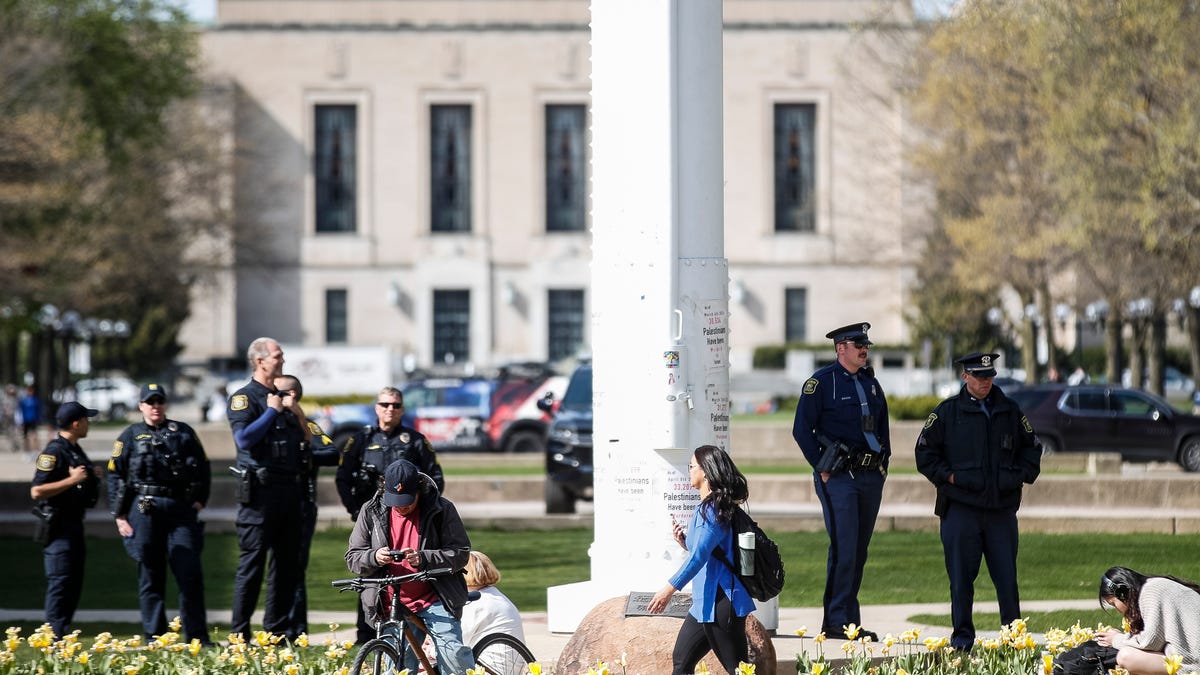
Amid a national crackdown on campus protests supporting Palestinians and calling for divestment from Israel that have resulted in about 2,300 arrests, a tent encampment at the University of Michigan in Ann Arbor set up almost two weeks ago has remained standing with commencement ceremonies set for Saturday that may see additional demonstrations.
And Wayne State University officials on Friday defended the actions of campus police who made one arrest after removing protesters accused of disrupting a Board of Governors meeting attended by the university president.
“The camp size varies throughout the day and night from 30-100” people, University of Michigan Deputy Police Chief Melissa Overton said Friday afternoon of the encampment at the Diag in Ann Arbor. “We have not made any arrests.”
Overton did not comment on what their possible plans were for the encampment, saying that the department does not discuss strategy. Lt. Rene Gonzalez of the Michigan State Police said they have been assisting university police as they do for other events. He did not comment further on future plans for the encampment.
At universities across the country, students have set up camps and protested, calling for divestment from Israel over its actions in Gaza that have resulted in thousands of deaths. In other states, such as in California at UCLA and in New York at Columbia University, police this week have raided protest camps, resulting in numerous arrests that have brought criticism from some civil rights advocates and elected officials, including U.S. Rep. Rashida Tlaib, D-Detroit, and praise from some Republicans such as House Speaker Mike Johnson. In Michigan, the tent encampments in Ann Arbor and at Michigan State University have not resulted in police crackdowns, but police did make one arrest on April 26 at Wayne State University that drew criticism from many faculty members in a letter. Organizers of the encampment at Michigan State University voluntarily ended it April 27, reporteed student newspaper The State News.
An April 30 letter signed by more than 100 professors and other faculty members at Wayne State read: “We … unequivocally denounce the actions of university officials in perpetrating violence against the students of this university at the April 26 Board of Governors meeting. We particularly condemn President Kimberly Espy and the Board of Governors, who looked on silently as a large group of … students were assaulted and violated by campus police and security.”
The letter alleged that “plainclothes police and security, some of whom were planted in the audience, rapidly and aggressively moved against the students. The President and Board looked on without emotion as the officers they oversee forcefully cleared the room of Arab, Muslim, and Jewish students, faculty, and community supporters. Campus police, in violation of their own protocol, flagrantly laid their hands on female students who were doing nothing more than chanting. One student was inexplicably arrested, even though students never received any order to vacate or disperse.”
The letter added “the attacks embody the latest wave of racist and McCarthyite repression against students on campuses across the United States.”
A Wayne State University spokesman, Bill Roose, released a statement Friday on behalf of the university that painted a different picture and criticized the protesters.
The Wayne State statement said that “more than a dozen public comment speakers exemplified Wayne State’s values and provided robust remarks.”
But “after transitioning to the business portion of the meeting, a group of protesters inside the crowded room locked their arms and announced, via a megaphone, that they were taking control of the meeting,” Wayne State said in its Friday statement. “Their actions halted the meeting and prevented it from continuing. At the same time, additional protesters locked their arms, blocking the only two exits. For a short time, no one was able to leave the room. Recognizing a real threat to the safety of everyone there, WSUPD (Wayne State University Police Department) approached the protesters, identified themselves as police, asked the protesters to leave, and ultimately removed them from the room.”
The statement said one protester, not a student at Wayne State, was “was briefly detained, cited for disorderly conduct, and released.”
Wayne State added that while “we will continue to support the free speech of everyone in our community … we are also responsible for ensuring the safety of our campus and our ability to carry out normal operations.”
A report in the South End, the campus newspaper, said the student who was arrested attended Oakland Community College and was charged with disorderly conduct. The meeting included public comments made in favor of divestment before the clashes.
The protests at the University of Michigan echo demonstrations held about 40 years ago calling for divestment from South Africa. In March 1986, a group of Michigan students constructed a shanty at the Diag to symbolize the suffering of Black people under apartheid in South Africa, calling upon the university to divest from companies doing business in the country, the Free Press reported.
In 1983, the state of Michigan enacted a law requiring public universities and colleges to divest from South Africa and sell their investments in companies that do business in South Africa, such as General Motors. But the University of Michigan fought back against the new law, filing a lawsuit against the state saying the law restricted their constitutional autonomy. The university’s regents eventually voted in October 1988 to fully divest from South Africa. The university divested from tobacco in 2000 and disinvested from fossil fuels in 2021. In 2022, the university said it would end future investments in Russia.
In 1978, Michigan State University became one of the first universities in the U.S. to divest from South Africa.
UAW President Shawn Fain, the leader of a union headquartered in Detroit, posted a thread this week on X expressing support for pro-Palestinian protesters, writing on May 1: “The UAW will never support the mass arrest or intimidation of those exercising their right to protest, strike, or speak out against injustice. Our union has been calling for a ceasefire for six months. This war is wrong, and this response against students and academic workers, many of them UAW members, is wrong.” Fain in December compared the struggles of Palestinians to the struggles against apartheid in South Africa.
Efforts in Michigan to divest from Israel have faced stiff challenges in recent years.
In 2017, a law went into effect in Michigan that prevents public contracts with anyone who supports divestment from or boycotting Israel.
More: During Passover and NFL draft, Michigan protests were held on both sides of war in Gaza
The Tahrir Coalition, which organized the tent encampment in Ann Arbor, did not respond to messages seeking comment. Organizers with Tahrir have been asking to meet with university regents to discuss divesting from Israel. An email sent Friday afternoon to the regents was not immediately returned. In recent weeks, a popular Islamic cleric based in Texas, Omar Suleiman, addressed the encampment via video and the religious leader at the Islamic Center of Detroit, Imam Imran Salha, spoke at the encampment, reported the Michigan Daily.
For Saturday’s commencement, the university announced on its website certain restrictions that include a “prohibition of banners, flags and anything that obstructs sightlines.” The university said that while it respects free speech and recognizes the history of protests at commencement, “if protests significantly impede the program, leadership will take steps to de-escalate and address the interruption.”
Contact Niraj Warikoo: nwarikoo@freepress.com or X @nwarikoo.
Michigan
$28.6M in MI Clean Water grants given to Michigan communities

MID-MICHIGAN (WNEM) – The Michigan Department of Environment, Great Lakes, and Energy (EGLE) announced Michigan communities have been given $28.6 million in MI Clean Water Plan grants.
The grants aim to help communities improve water infrastructure, ensure clean drinking water, and protect Michigan’s environment, EGLE said.
EGLE said 70 percent of Michigan residents are served by more than 1,000 community wastewater systems, and a similar number of residents rely on community water systems for drinking water, but many of those systems are struggling to address aging infrastructure and other challenges, like PFAS regulation.
Many of these grants will be given to communities to support work being done to identify or verify lead service lines in preparation for replacement, EGLE said.
The communities in mid-Michigan receiving these grants include the following:
- Akron: $42,200
- Bridgeport Township: $600,000
- Buena Vista Township: $597,850
- Harbor Beach: $138,720
- Ubly: $585,068
Subscribe to the TV5 newsletter and receive the latest local news and weather straight to your email every day.
Copyright 2024 WNEM. All rights reserved.
-

 News1 week ago
News1 week agoLarry Webb’s deathbed confession solves 2000 cold case murder of Susan and Natasha Carter, 10, whose remains were found hours after he died
-

 News1 week ago
News1 week agoFirst cargo ship passes through new channel since Baltimore bridge collapse
-

 World1 week ago
World1 week agoHaiti Prime Minister Ariel Henry resigns, transitional council takes power
-

 World1 week ago
World1 week agoSpanish PM Pedro Sanchez suspends public duties to 'reflect'
-

 World1 week ago
World1 week agoUS secretly sent long-range ATACMS weapons to Ukraine
-

 News1 week ago
News1 week agoAmerican Airlines passenger alleges discrimination over use of first-class restroom
-

 Movie Reviews1 week ago
Movie Reviews1 week agoHumane (2024) – Movie Review
-

 Education1 week ago
Education1 week agoVideo: Johnson Condemns Pro-Palestinian Protests at Columbia University
